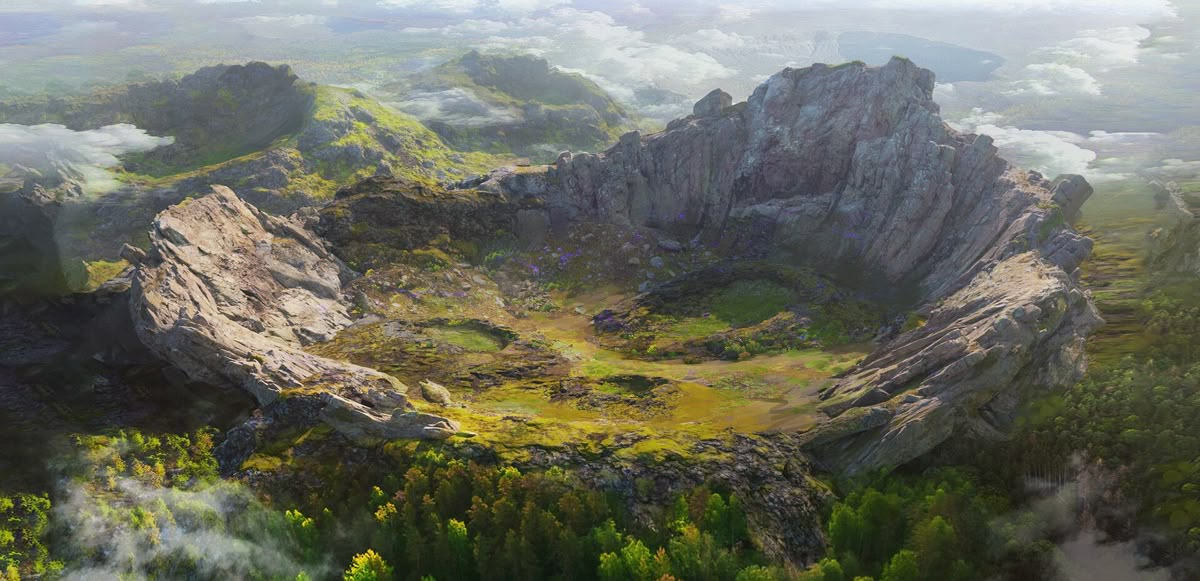The Crater
They call it The Crater like it’s just a hole in the ground.
Like it’s something you can map and walk away from.
But you don’t understand The Crater until you’ve stood on its edge, boots on green glass, and felt the heat from a source that is no longer.
-Reports of Iza Saltooth
We were told it used to be vertical farmland. All of it. Orchards, rice terraces, irrigation channels so precise they could split a droplet. This was the breadbasket of the Second Empire, back when the Grid still pulsed and the sky machines still listened. The old maps call it Ophir Basin. Now it’s just ruin and silence.
What we do know is this, something detonated deep inside the Grid. something vast, something impossible. A weapon? A core breach? A final act of sabotage before the fall? No one agrees. What we’re left with is a glass sea, miles wide, smooth and jagged all at once. The soil turned to green glass, brittle, and still hot after all these centuries.
We tried to camp near the rim once. By the second night, half the crew had nosebleeds. One of the rookies saw a tower rising out of the crater’s center, a shape of light, hovering, humming. No one else saw it. He died the next day, skin like candle wax. We burned his body and logged it as radiation sickness.
There’s a wind in the Crater that doesn’t match the sky. It moves in circles, low to the ground, and it hums if you’re quiet. Machinery, some say. A forgotten vault trying to breathe. Others say it’s the voice of the Grid, still calling out to a world that stopped listening.
We Tech Hunters don’t go in unless we have to. Not without suits, not without silence, and never for long. But even now, Scavenger Guilds trade blood and coin for Trinitite shards pulled from the edge. They say they’re just radioactive glass, but I’ve seen one hum when touched. I’ve seen one burn cold.
I don’t know what The Crater is. But I know it’s still alive.
Type
Crater / Crater Lake / Caldera
Local Flora
Placeholder - Found both cultivated and wild.
Local Fauna
Bonedog - Found scavenging the wastes in large packs or solitary hunters.



Comments